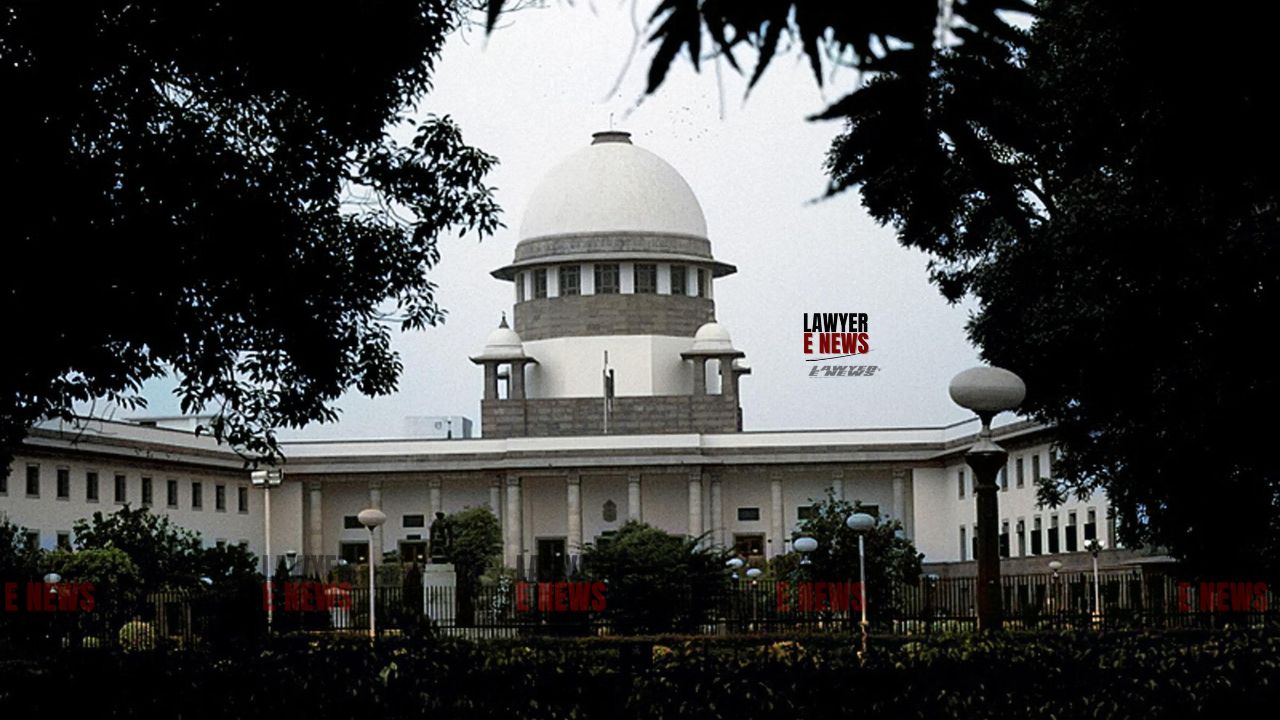-
by sayum
17 February 2026 8:32 AM



“No Disease Was Noted at Entry — Then Service Must Be Presumed as the Cause. The Burden Lies on the Government, Not the Soldier” — Reasserting that beneficial legislation like disability pensions must be interpreted with compassion, the Supreme Court of India delivered a powerful judgment restoring dignity and benefits to an ex-army man. The Court held that the denial of disability pension on the sole ground that the disability was assessed below 20% is unsustainable, and directed the government to pay 50% disability pension with arrears from January 1, 1996.
Justice Ujjal Bhuyan, writing for the Bench, declared:
“If there is no note or report at the time of entry into service that the member suffered from a particular disease, the presumption is that the disease was caused by military service. The burden of proof lies entirely on the employer.”
The Court condemned the Armed Forces Tribunal for its mechanical reliance on a sub-20% disability rating and failure to consider whether the disease was attributable to or aggravated by military service.
A Soldier Invalided, a Legal Battle for Dignity
The appellant, Bijender Singh, was enrolled in the Indian Army on September 30, 1985, and posted in Siachen from May to September 1988. In October 1988, he suffered a generalized tonic-clonic seizure, was medically examined, and subsequently invalided out of service on August 14, 1989. His disability was pegged at 15%, and the Invaliding Medical Board concluded it was not attributable to or aggravated by military service.
Subsequent Re-Survey Medical Boards (1993, 1998, 2002) reaffirmed the same assessment, making his condition lifelong but still below the 20% benchmark needed for pension eligibility at the time.
However, the Supreme Court found the entire process flawed, driven more by numerical thresholds than legal substance.
“The Tribunal simply went by the remarks of the Medical Boards without examining the critical issue — whether the disease arose during service or was aggravated by it.”
Supreme Court's Rebuke: “Presumption Favors the Soldier — That’s the Law”
The Court emphasized that Regulation 173 of the Pension Regulations, read with Rules 5, 9, and 14 of the Entitlement Rules, mandates a liberal and welfare-oriented interpretation in favor of the soldier.
It referred to the settled principle in Dharamvir Singh v. Union of India (2013):
“If there is no record at entry about a disease, and it leads to invalidation, the presumption is that it was caused by military service.”
Justice Bhuyan noted that the Invaliding Medical Board had itself answered “No” to the question of whether any disability pre-existed the soldier's entry. Yet, neither the Board nor the Tribunal explained why the disease wasn’t presumed attributable to military conditions, especially given Singh’s high-altitude posting.
“It was incumbent on the Medical Board to state cogent reasons if it wanted to rebut the presumption of attribution. In the absence of such reasons, denial of benefits becomes arbitrary.”
On the 20% Threshold: “Arbitrary, Outdated, and Set Aside”
The Court dismantled the state’s argument that Singh wasn’t eligible for pension because his disability was below 20%. It cited:
MoD’s own instructions dated January 31, 2001, and
Clarificatory letters from 2006 and 2010, which removed the 20% cap for post-1996 cases.
“The policy evolved to grant 50% disability even for 1%–49% disabilities. This was not only acknowledged in official letters but confirmed in K.J.S. Buttar’s case.”
Referring to K.J.S. Buttar v. Union of India (2011), the Court reminded:
“There would be a violation of Article 14 of the Constitution if those invalided out before January 1, 1996 are denied the same benefits as those discharged after.”
The Court concluded that the blanket denial on a numeric cut-off violated both constitutional equality and settled pension jurisprudence.
“Service-Related Suffering Deserves More Than a Statistic”
Setting aside both orders of the Armed Forces Tribunal dated February 26, 2016 and January 22, 2018, the Supreme Court awarded:
“Disability element of pension at the rate of 50% for life with effect from 01.01.1996, along with 6% interest on arrears.”
The Court’s message was unambiguous: compassion and legality must walk together when dealing with servicemen. Technicalities and outdated policies must give way to principles of fairness, dignity, and equal treatment.
“A soldier cannot be asked to prove the cause of a disease when he was medically cleared at the time of recruitment. That’s not the burden he signed up for.”
Date of Decision: April 23, 2025
